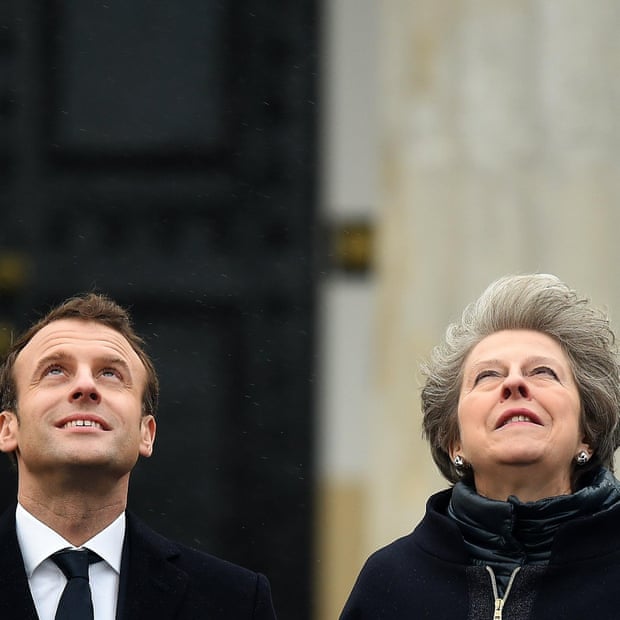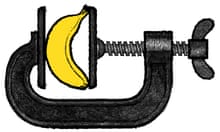The government has defended asking businesses to sign secrecy agreements in private discussions about the UK’s future border arrangements with the EU, which reportedly include laying out scenarios for a no-deal Brexit.
Non-disclosure agreements (NDAs) are reported to have been signed with logistics companies and industry bodies who have been part of a consultation on the future UK border, according to Sky News.
Companies and industry groups are reported to have been asked to sign the agreements during private discussions with the government, held in order to give officials clearer data on what is being transported over the border, as well as to ask for their response to possible future post-Brexit scenarios, including no deal with the EU.
The government said the agreements were enabling practical planning discussions with stakeholders, who operate systems and processes at the border.
The Guardian has been told that the NDAs have not been confined to haulage companies and trade industry bodies, but applied across other industries that could be affected by Brexit.
One managing director said the chair of their manufacturing industry group had signed an NDA prior to discussions with the environment and business departments.
“The chair of the group meets with government officials but is not permitted to discuss what was said, in any form, with the companies who make up the membership,” the director said.
“He returns confirming he’s been to meetings but forbidden to say anything about how or if industry questions were answered, what form future trading may take or any other aspect they discussed. So Brexit planning and strategy, if there is any, remains hidden.”
MPs have said the government proposals in discussions should be made public, given that parliament is set to vote on both the trade bill and the taxation (cross-border trade) bill in the coming months.
The Labour MP Meg Hillier, the chair of the public accounts committee, which has been highly critical of the preparation for border crossings, told Sky News the agreements were unusual and normally only used with commercial contracts, not in consultations with stakeholders.
A Downing Street spokesman said: “Non-disclosure agreements are absolutely standard practice for the government to use. They are crucial to an exchange of information and opinion on options and scenarios between ourselves and business.
“They ensure all planning negotiations and decisions are based on what is most appropriate for the UK to ensure a safe and secure border.”
HMRC also insisted the agreements were standard practice, and that they protected commercially sensitive information provided by operators, but Hillier said they “shackle organisations that might want to criticise or comment on Brexit”.
Labour is believed to be considering further options to press the government on what it has disclosed to businesses. The shadow Brexit minister Paul Blomfield said there was “no legitimate reason why ministers should be instructing businesses to sign these non-disclosure agreements”.
Quick GuideAll you need to know about Anglo-French trade
Show

Which country is 'on top'?
Roughly £71bn of goods and services were traded between the two countries in 2016. France has the upper hand: the UK exported £33.8bn to France but imported £37.6bn. Exports to France have fallen by about 9% over the last decade, while imports are roughly flat. France is Britain's third-largest export market.
What gets traded?
There is an appreciation on both sides of the Channel for what each country does well: Britain is the largest importer of champagne, while more than 28m Harry Potter books have gone the other way. France is the second biggest European food exporter to the UK and accounts for 20% of dairy imports. There were more than 500 French restaurants in Britain in 2017, 54 of them in the Michelin Guide. Among the most common UK exports are cars, chemicals and financial services. France is a big exporter of aircraft, machinery and cars.
Living and working
About 150,000 British citizens live in France, while 155,000 French nationals are settled in the UK. Banking is the most common type of employment for French people in Britain, with the vast majority of them living in London and the south-east; there are 15 accredited French schools in the UK, 13 of which are in London. Roughly a quarter of all British citizens in France live in the Nouvelle-Aquitaine region in western France.
Tourism
The French make about 4m visits a year to the UK, making them the number one nationality of foreign visitors. About 11 million tourists visit France every year from the UK, more than from any other country.
Business links
More than 1,000 subsidiaries of British companies were based in France in 2014, generating 195,000 jobs. French companies with major operations in Britain include the energy giant EDF and the utilities firm Veolia.
Angela Monaghan
“The only conclusion that can be drawn is that the government is trying to hide the fact that they have no plausible plan for protecting British trade and manufacturing,” he said.
Labour’s Chuka Umunna, a leading supporter of the Open Britain campaign, said: “This is a shocking and very serious development. The government is sharing its plans for Britain’s borders with companies, collecting data on the impact of their plans and then making those companies sign gagging agreements to withhold the information from parliament and the British people.
“It is undemocratic and makes a complete mockery of parliamentary sovereignty. MPs must be provided with this information in order to reach an informed view on the customs and trade bills which are currently making their way through the House of Commons.”








